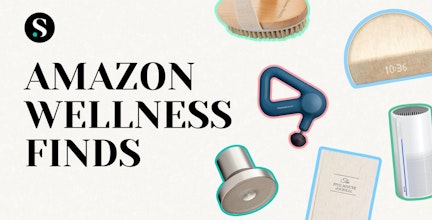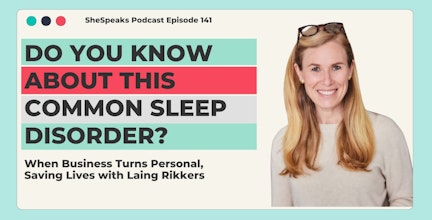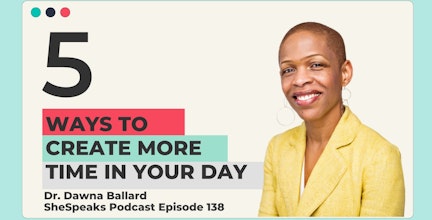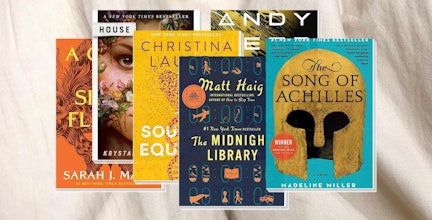Why Do We Treat Pets Like People?

“Cows are people too, you know,” reads Stonyfield Farm’s yogurt lid. The advertising line works not just for the absurdity of the statement, but because we recognize something of ourselves in it. My sister’s friend calls her cat “The Dude” for his laid-back, Jeff Lebowski?like demeanor. Another friend is convinced her dog gets embarrassed when he’s forced to poop in front of her. My stepmother treats her horse like a son. How else could you explain the $40 billion business of pet care in the U.S.? You see, Fifi is very particular about the labels she wears.
Why Do We Humanize Animals?
Anthropomorphism is the attribution of human motivations, characteristics, and behaviors to nonhuman entities. The word originated in ancient Greece, from the Greek words for “man” and “form,” to describe the characterization of pagan gods (and eventually the Judeo-Christian God) in human terms. When humans do not have cognitive access to something, or the ability to experience, understand, or communicate with it, we often try to make sense of it by viewing it as an extension of ourselves. We assume its thought processes and motivations are similar to ours. We identify.
People are more likely to anthropomorphize things or beings that look and act like us: animals that have faces, for example, or that walk. We’re more likely to personify a dog than a tree, or a bear than a snake. By imbuing animals with human characteristics and thought patterns, we shorten the distance between us. We start to see their behavior as either positive or negative, and we become sympathetic or, stronger still, empathetic. This feeling of a “personal” relationship can benefit humans as much as it does the animals that rely on us for food and shelter. One recent Japanese study found that a dog’s gaze can increase the owner’s level of oxytocin, the feel-good hormone instrumental in social bonding.
Do Animals Have Personalities?
Besides anecdotal evidence, there is scientific research to support the idea that animals exhibit individual and consistent behavior across a variety of situations. Using game-theory models, researchers at the University of Groningen in the Netherlands have suggested that fish, bird, and mammal “personalities” may be linked to evolutionary survival and reproduction.
But is personality just about consistent behavior, or is it also about emotion? Scott Blais is the cofounder and director of operations at the Elephant Sanctuary in Hohenwald, Tennessee. With over 2,700 acres, it is the largest natural-habitat refuge for endangered Asian and African elephants in the United States. A unique operation whose number one priority is the respect, health, and privacy of the animals, the Sanctuary centers on the basic assumption that every elephant has distinct needs and personalities.
When talking about “the girls,” as the caretakers at the Sanctuary (which hosts females primarily) call the elephants, Blais says, “Some have trust issues; some have more social needs; some just want you to stand close to them.” Ned, who passed away in May 2009, was a gentle soul. Shirley is the “grandmother” of the group. Billie, who had a reputation as “dangerous” in her circus days, is insecure but increasingly cooperative and dependent on her best friends, Frieda and Liz. She also loves back rubs. Tange is coming into her own after the passing of her longtime friend Zula; Blais describes this situation as similar to what a person might go through after a spouse dies.
While Blais believes it’s foolish for humans to assume animals don’t have the capacity for happiness and sadness, he draws his conclusions about the elephants’ personalities from watching their behavior. He may not always know what motivates their behavior, he says, but he’s confident they feel emotion and “they are as individual as people or dogs or cats.”
Can We Take It Too Far?
Anthropomorphizing animals goes both ways. If by bestowing human characteristics and motivations on animals, we can see them as responsible parties worthy of care and consideration, we can also see them as worthy of blame. When an orca at SeaWorld recently drowned a trainer, witnesses and bloggers were quick to paint the marine mammal, who had been involved in two previous human deaths, as a killer. The Humane Society and the marine park responded with statements reminding people that animals’ behavioral motivations are complex. Tilikum the whale was certainly not a twelve-thousand-pound serial killer.
Many zoos raise specific animals to celebrity status. It’s a way for visitors to connect on, quite literally, a personal level, and it’s a marketing gimmick. About twenty years ago, some U.S. zoos, including those in Pittsburgh, Detroit, and Miami, tried to move away from this humanizing trend by no longer publicly naming their animals. They hoped that would not just move attention away from particular animals and toward the species in general, but also remind visitors that these were not pets but wild (kind of) animals.
Scott Blais saw that trend in a slightly different light: visitors becoming too sympathetic to zoo animals might start to take issue with the concept of zoos in general. “If [animals] have personalities,” Blais says, “how can you justify keeping them in that level of confinement?”
There’s a fine line between seeking to understand animals by conceiving their behavior as cohesive personalities with psychological or emotional motivations, and treating them like people. To respect any creature is to appreciate it for what it is. At the Elephant Sanctuary, an elephant?timid or brave, playful or reclusive?is still, first and foremost, an elephant.
Make a Comment
 by
darc7781 | Parrish, FL
by
darc7781 | Parrish, FLI do agree with this but some people take it just a little to far!
 by
ArtisticAngell | North Smithfield, RI
by
ArtisticAngell | North Smithfield, RIHello, I would have to say my dog Bruschi (mini poodle) is my baby, He is soon to be 4 yrs old. I helped deliver him at time of his birth. He is very loveable, is very smart , and he brings so much love to our family. He is my little son lol He has been part of the family since the day he was born and will be forever. He listens very well with demands , like go to bed, go get ur ball,,wheres ur cookie and he goes and gets it. He sleeps with my hubby and I every night and he loves to cuddle up close to you. I think that me being there to help deliever him I am alot closer to him , It is a whole different feeling and hard to explain the love I have for him. My baby will always be a apart of the family. My mom calls Bruschi her grandson...lol ,. I have never loved a dog more then I love Bruschi. Love you my little man.
 by
musicmomma | LONG VALLEY, NJ
by
musicmomma | LONG VALLEY, NJOur dog was our first child. Then we were fortunate to have 2 beautiful children of our own. We consider our dog kid #1 and make sure that our human children treat him with as much love and respect as they do with each other.
 by
Brooke86 | Mount Vernon, KY
by
Brooke86 | Mount Vernon, KYI can't have children, so my dogs have become my children for now. They are so responsive to me and seem to know when I need their love the most. In turn I do the very best I possibly can for them. They get checkups every 3 months and are fed natrual foods. They are walked 2 times a day and bathed weekly. They mean everything to me, and yes, I do have a dog stoller and I also have their pictures professionally taken.
 by
savyshopper | CHICO, CA
by
savyshopper | CHICO, CAOur pets sorry to say is our family.. and sometimes for some probally companionship then their real family members.. ! We have been blessed with very loving family four legged ones that have been our companions through all of our married life. They have always been part of our family and if we humanized them it was only because it was out of love ...and it was always welcomed...
 by
kswms2003 | W BLOOMFIELD, MI
by
kswms2003 | W BLOOMFIELD, MIWe have Raven(husky mix). She is a bundle of joy. She has brought us so many laughs and things to remember. She understands our ways and routines. For ex, when we get up to get our clothes on, as soon as she sees me put clothes, she immediately goes into her room where she stays until we come home. She is so smart it is unbelievable, when we ask her if she has to potty, she barks and we take her out she potties. When you tell Raven, "Raven go to bed" she goes to bed. When you tell her to "go to your room." She goes to her room. She has been fun to have. All in all she is good company to have. I say, love your pet, like you would and if it means talking to your pet whether they understand or not, they understand enough to continue to be with you as long as you have them.....even in the good times and not so good times....a buddy for life.
 by
ImMissi | Dayton, OH
by
ImMissi | Dayton, OHI have a Shih Tzu (Fozzi Bear) and a Maltese ( Murray McFlurray) These are my kids! *dogs*. The human one is my daughter, LOL...........Call me crazy, but my kids mean the world to me. I have depression and when they feel I am having a bad day, they sure do know it, and come to me to brighten it up! They know the word "Love", Kiss, Bye Bye, and family members by name and so much more. And YES! They do have emotions , maybe not equal to humans or the understanding. My kids love cheese, salad w/o dressing, carrotts, some fruits and veggies. I feed them good things. I cook chicken breast w/rice, etc.......And they even sleep w/ me! If I had the funds, I would own my own rescue because no animal deserves to be mistreated, EVER!!!!
 by
linda_answer | SAINT LOUIS, MO
by
linda_answer | SAINT LOUIS, MOOur dog is a major part of the family. She is a sweetie and everyone loves her. When you are upset she is right there to comfort you. Not every human in your life will do that! My hubby and I love her a lot. We had two companies come over for bids on some work for our house. Both were men. One guy said, "what a pretty litte lady". My doggie loved the attention. The other guy paid her a lot of attention and said he and his wife loved dogs too. People who love animals are for the most part some great people! Here's to our pets that we love
 by
BBQME2 | CEDAR RAPIDS, IA
by
BBQME2 | CEDAR RAPIDS, IAI look at it as; They give us so much joy, unconditional love, protection and compannionship WHY not spoil them, give them all natural foods (mine eat EVO) and let them sleep in your bed! My Yorkie and Min Pin are just like one of my children! When we travel we always try to also take our dogs with us. More and more hotels are allowing pets now!
 by
lorm60 | FRANKLIN SQ, NY
by
lorm60 | FRANKLIN SQ, NYI have a cockapoo who I adore! I was never much of an animal lover until this very special dog came into my life. I feel everyone in their lifetime should have the pleasure of the unconditional love that animals give!
 by
bugsy259 | warwick, RI
by
bugsy259 | warwick, RII have 5 year old yorkie and he is a very important member of our family. He is loved by all. Everywhere we go he goes. Loves the car, long walks.
 by
amanda_clc | LaBelle, FL
by
amanda_clc | LaBelle, FLI love my shih-tzu, he is 5, I dont have any children, so he has all our attention!! I do make his food also as much as I can, I dont have a stroller, but have a sit belt when we go bye bye, he is just such a loyal pet that I cant resist to give my love to him! I know he is not a person, but he doesnt know, lol...
 by
brandypelland | DEFIANCE, OH
by
brandypelland | DEFIANCE, OHi agree with pretty much everything that was stated here we love are pets and put them in human form with names but i dont go to far as some does to each there own i guess
 by
anacandelas | Brea, CA
by
anacandelas | Brea, CAI probably tend to humanize my dog because she seems so in tune to me, my emotions, moods, and she's so responsive. Although she may not understand everything I say to her, I can bet that 95% of the time she gets the jist of it. She's learned to associate words and names to objects, people, and other dogs. She'll correctly identify an object or person, or other dog when they're mentioned. As far as a dog having emotions.... absolutely! They may not be at the level humans express their emotions, or feel them, but they certainly do "feel." Ultimately, I suspect we tend to humanize those creatures that seem to have a certain level of intelligence and seem to empathize with us and try to comfort and/or entertain us. I don't know that a dog would translate that as "love" as much as it would (if it could) possibly be deemed as "loyalty." But then again, couldn't loyalty equate love?
 by
mammamoy | Bronx, NY
by
mammamoy | Bronx, NYWell I have to ask msfriendly if she has ever owned a pet? And I don't mean a fish (no offense to anyone). Being a pet owner myself (cat and dogs), you can't help but treat them like people. They are always there unconditionally giving you their full attention and love. So it's very natural to talk to them and hug and kiss them. They give back so much and hey never argue with you or talk back!!








_10242023164832.jpg?max-w=432&max-h=220&fit=crop&auto=format)

_08172023152001.jpg?max-w=432&max-h=220&fit=crop&auto=format)





_01252024061712.jpg?max-w=432&max-h=220&fit=crop&auto=format)


 (6)_07082023175312.jpg?max-w=432&max-h=220&fit=crop&auto=format)
 (1)_05192023144508.jpg?max-w=432&max-h=220&fit=crop&auto=format)
 (37)_05032023114523.jpg?max-w=432&max-h=220&fit=crop&auto=format)